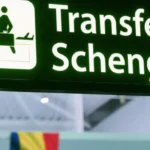The European Union has decided to be stricter on the traceability of cocoa to fight against deforestation. Switzerland will have to adapt if it wants to continue exporting to its neighbours.
The European Union decided in June to ban the import of foodstuffs linked to deforestation. The Swiss chocolate industry is concerned and will have to adapt if it wants to continue to sell its products to its neighbors, as revealed by a subject broadcast on Tuesday by the “7:30 p.m.” of the RTS. And it’s not nothing. Switzerland produces 200,000 tons of chocolate per year. A quarter is consumed in the country and the remaining three-quarters are exported. More than half of these exports (55%) go to European Union (EU) countries.
“We cannot accept”
From December 30, 2024, it will be necessary to certify that the product offered does not contain cocoa from a culture based on clearing or damage to the forest. Questioned by the RTS, Thomas Juch, spokesperson for the umbrella organization Chocosuisse, clearly sees a threat to Swiss production there: “If we can no longer export to the EU, we will have quite massive problems for this heritage of the Swiss identity. It’s just something we can’t accept.”
Ivory Coast and Ghana
To be able to export its chocolate to the EU, Switzerland will therefore have to adopt compatible and forest-friendly regulations in the producing countries. Asked by the RTS, the State Secretariat for the Economy (SECO) gave an answer that lacked a bit of flavor: “The Federal Administration is assessing the consequences of this regulation, both on overall deforestation and on the burden administration for Swiss companies”.
Between the lines, we can guess the lack of enthusiasm of the said administration in the face of this new situation of cocoa traceability. There are eighteen months left in Switzerland to find a parade and not end up chocolate.
This article is originally published on lematin.ch







